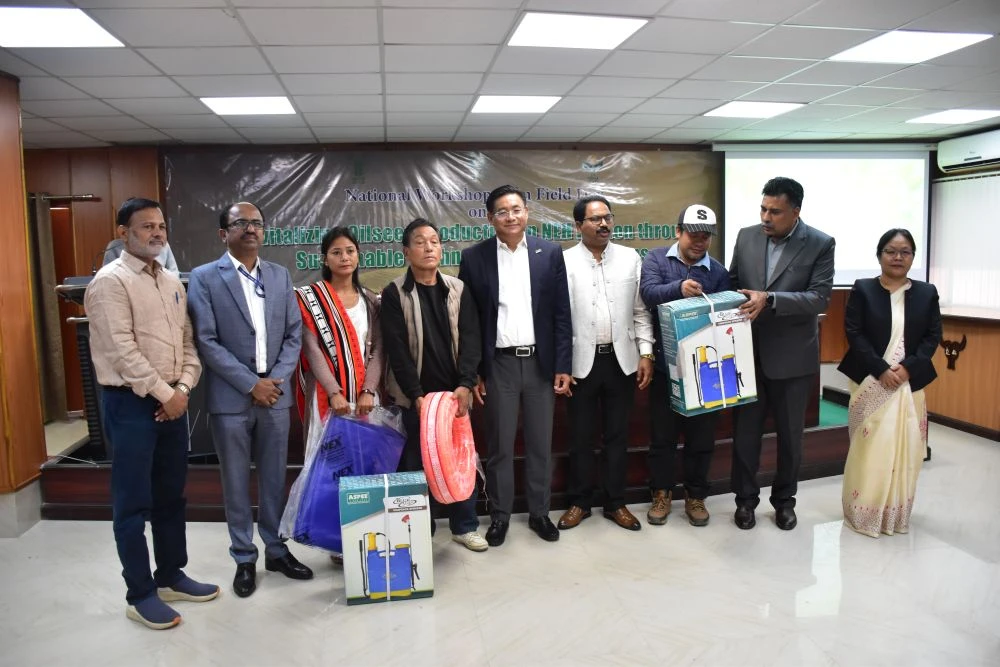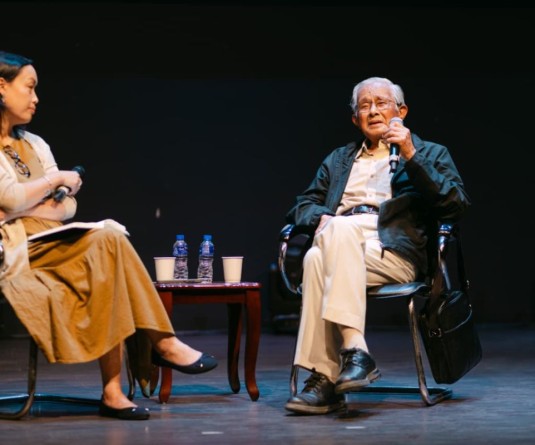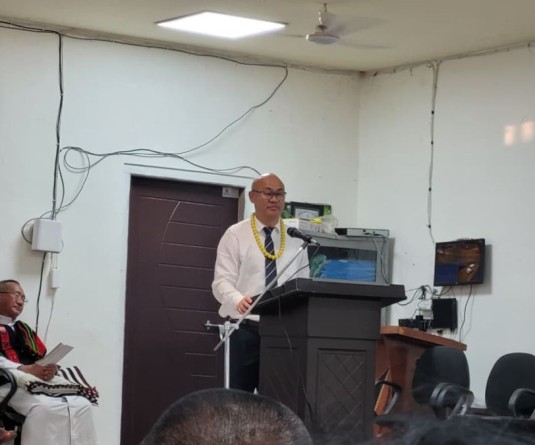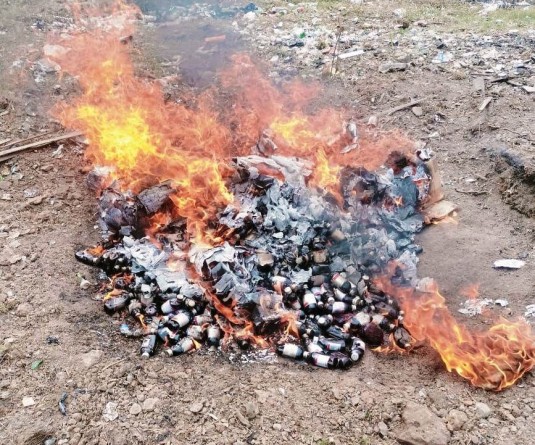MEDZIPHEMA, FEBRUARY 28 (MExN): A National Workshop cum Field Day on “Revitalising Oilseed Production in the NEH Region through Sustainable Technological Intervention” is currently being held at the ICAR Nagaland Centre in Jharnapani, Medziphema, from February 27 to March 1. The event is organized by ICAR Nagaland Centre in collaboration with the ICAR-Indian Institute of Oilseeds Research (IIOR), Hyderabad.
The formal inauguration of the workshop took place on February 28, with Mhathung Yanthan, Advisor for Agriculture, serving as the chief guest. Dr BC Deka, Vice-Chancellor of Assam Agricultural University, Jorhat, attended as the special guest. Other dignitaries present included Dr R.K. Mathur, Director of ICAR-IIOR, Dr Girish Patil, Director of ICAR-NRC on Mithun, Dr I. Shakuntala Devi, Dean of the College of Veterinary Sciences & Animal Husbandry (CAU), Jalukie, and Dr Homeswar Kalita, Head of ICAR Nagaland Centre.
The workshop began with a welcome address by Dr Homeswar Kalita, who outlined the objectives of the event and emphasized the need to improve oilseed production and productivity in the northeastern region.

Dr BC Deka provided an overview of the agricultural situation in Nagaland, noting that approximately 2 lakh hectares are dedicated to paddy cultivation, with 1.2 lakh hectares under jhum paddy. He highlighted the challenges posed by soil loss in the state and mentioned key oilseed crops such as sesame, linseed, sunflower, and perila. Dr Deka suggested converting 10% of jhum land to oilseed production as a potential means to increase farmers' incomes, proposing that the state could start by cultivating 200-300 hectares with oilseeds, alongside beekeeping, to benefit from both sectors.
Dr RK Mathur discussed the importance of cluster farming and the formation of Farmer Producer Organizations (FPOs) to help farmers collaborate, pool resources, and access better markets. He also advocated for sustainable cropping systems, such as intercropping, which can increase yields and help manage pests and diseases. Dr Mathur stressed the need for water harvesting techniques and soil moisture conservation practices to address water scarcity, and he recommended promoting location-specific crops suited to the diverse conditions across the region. He emphasized that oilseed cultivation could improve farmers' income and contribute to higher agricultural productivity.
Dr I. Shakuntala Devi focused on the importance of strengthening post-harvest processing for oilseeds and developing effective marketing channels.
In his address, Mhathung Yanthan emphasized oilseeds' role in food security and boosting farmers' incomes. He urged farmers to expand oilseed cultivation and improve yields. He also highlighted the distribution of soil health cards to farmers and stressed the need for better market linkages. Yanthan called for improved jhum farming systems and further research to enhance oilseed production, particularly in hilly areas. He encouraged all stakeholders to collaborate on research, demonstrations, and trials.
The event was attended by 150 participants, including representatives from various departments, ATMA, KVKs, and farmers from Dimapur, Chümoukedima, Niuland, and Peren districts. During the inaugural session, participants received agricultural inputs such as thrashing sheets, knapsack sprayers, garden pipes, and seeds from the Chief Guest. The session concluded with a vote of thanks by Dr. Harendtra Verma, Scientist at ICAR Nagaland Centre.
On February 27, a technical session was held, where experts from ICAR institutes and Assam Agricultural University discussed various aspects of oilseed production, promotion, value addition, and marketing. On the final day of the workshop, farmers will be taken on an exposure visit to oilseed production sites by scientists from ICAR Nagaland Centre and ICAR-IIOR.






